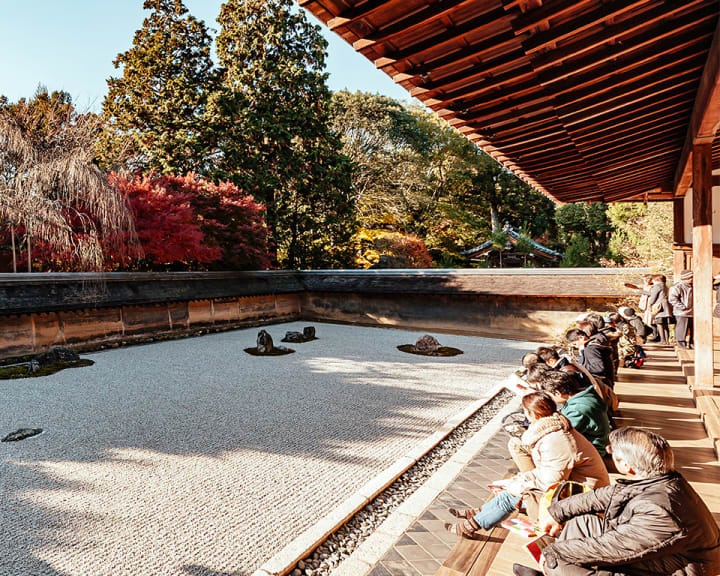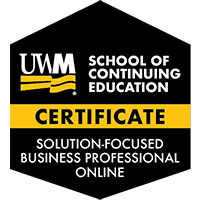69. Everything lies open to view – but that doesn’t mean you can see it all right away
How a garden in Japan helped expand my understanding of Solutions Focus
There’s a paragraph in the new edition of The Solutions Focus book (and in both the older editions too) about philosopher Ludwig Wittgenstein’s exhortation not to hypothesise but to observe. Here it is:
Ludwig Wittgenstein, in his book Philosophical Investigations, argued that language is a poison that can be used to seduce, mislead, and bewitch us. But it can also heal, as when we speak truly. When we are bewitched, we tend to stare the hypnotic gaze. We then tend to see illusory essences, which rise out of pictures embedded in language, but which seem to lie deep in the mind or the world. Distinctions and differences are missed, the eye is dazzled by the ideal. And all this leads to us talking disguised nonsense.
I cite the somewhat ancient book Wittgenstein For Beginners by John Heaton and Judy Groves, Icon Books, 1994 for this passage, which is a very helpful summary of Wittgenstein’s position. (Wittgenstein himself was loathe to summarise his ideas, fearing that they would lose their subtleties and context – which is why the Beginners book is such a useful starting point.)
If the idea Wittgenstein is pointing us towards is that speaking clearly, descriptively and truly can heal, then I second that 100%. Solutions Focus (SF), particularly in its more recent takes, has become even more clearly associated with building detailed descriptions and eschewing the urge to explain, hypothesise and theorise (about the client’s life and what they ‘ought’ to do). In his posthumously published masterwork Philosophical Investigations, Wittgenstein sets out his clear position about resisting explanations and rather looking at what’s there:
126. …Since everything lies open to view there is nothing to explain. For what is hidden, for example, is of no interest to us.
In this piece I’d like to examine this idea that ‘everything lies open to view’ and relate how a visit to a Zen garden in Kyoto helped me to a new understanding of this key idea. It helped me in my work, and it might help you too.
The Ryoanji garden in Kyoto
I have been lucky enough to visit Japen four times (so far) to participate in SF conference, lead workshops and meet Japanese SF practitioners. It’s an amazing and wonderful country, particularly when you have locals to look after you and show you how it all works. And it DOES all work – the reliability of machines and transport is at a level undreamt of in the UK. The landscapes are fantastic, the food is so varied and always prepared with care, the whisky, sake and beer are superb… you might be getting the idea that I am a Japan-fan.
Jenny and I visited Kyoto three times during our times in the country and got a little familiar with the place and its parks. (We even made a habit of having a matcha green-tea ice-cream from a certain kiosk.) On our third trip, our hosts took as to the Ryoanji temple and garden complex for what turned out to be a vital learning experience.
Ryoanji was originally an aristocrat's villa during the Heian Period, the site was converted into a Zen temple in 1450 and belongs to the Myoshinji school of the Rinzai sect of Zen Buddhism, whose head temple stands a kilometre away. It has a beautiful park with a pond, but the main attraction is the rock garden, said to be the most important in the country.
The garden follows the Zen principle of being mostly beautifully-raked gravel. The act of doing the raking is a key meditative practice. Within the gravel sit 15 stones on patches of turf. It all looks wonderfully peaceful – and yet the garden has an important and (not-so) hidden feature. There are indeed 15 rocks in the garden – but there is no single vantage point from which all 15 can be seen at once. You count the rocks – 14. Then you move around the viewing platform by the side of the temple building, still 14 rocks. Then one rock starts to be hidden by another… and right at the moment it slides out of view, a different rock starts appearing somewhere else. So there are still 14 rocks, but they are not the same 14 rocks as you saw a moment ago.
The care and skill to arrange the garden in this way is truly stunning. It’s quite an attraction, as you can see from the people in the photo below sitting on the viewing platform to contemplate it. Everything lies open to the eye… but that doesn’t mean you can see it all right away. Or indeed ever.
Lessons for SF practitioners and coaches
In SF practice we learn to not be distracted by ‘deep’ explanations, ‘hidden’ causes or illusory essences. We don’t want our eyes to be dazzled by what ‘ought to be’ (in our own minds). Rather we stay observant, stay descriptive and work with our clients’ language and presence. I like the idea that ‘everything lies open to view’ and therefore I should stay observant rather than try to fill in the gaps with my own theorising. What Ryoanji made clear to me in a startling and memorable way is that even if everything lies open to view, I can’t necessarily see it all at once.
There are some good lessons here, I think. What I took from the experience included:
Stay observant and keep open to new things appearing in the conversations and work
Be patient – give space for new things to emerge
When something starts to appear, give it a little space and attention
New things appearing may mean that older things lose focus and attention… they are still there when we want to go to them.
Conclusions
It seems to be that there are two types of ‘hidden’ things here. One is like the 15th rock in the garden – it’s every much visible but you have to stand in the right place to see it. The other ‘hidden’ things (explanations, causes etc) are tempting ways to impose order on events, but that’s not our role. We help our clients to describe better pasts, presents and futures and then comes to their own conclusions about what may or may not connect with their lives and experience. Helping people be themselves – not imposing on them – is a key part of organising humanely and effectively. Staying observant – and patient – is a key part of that endeavour.
Dates and mates
Sunday 27 October 2024: It’s the last call this year for my flagship SF Business Professional course with the University of Wisconsin Milwaukee. 16 weeks of learning, interacting, practicing, a project and the best possible grounding in SF work in organisations. Accessible everywhere in the world! Small group, lots of connection, a wonderful experience. I won’t be running many more of these so take the chance now. We are definitely running this course so come and join me. The next one won’t be for another year…







